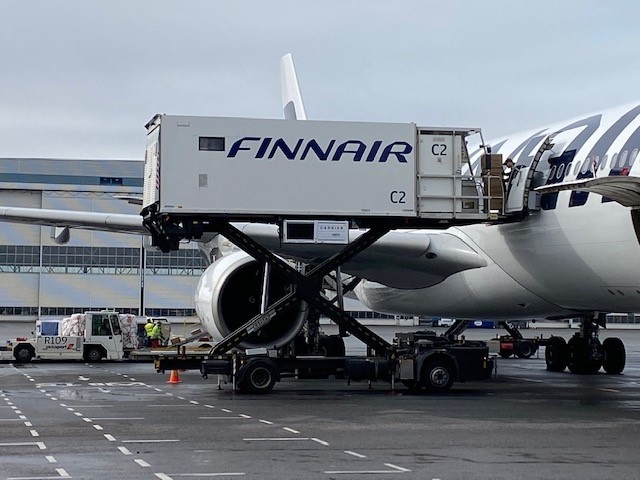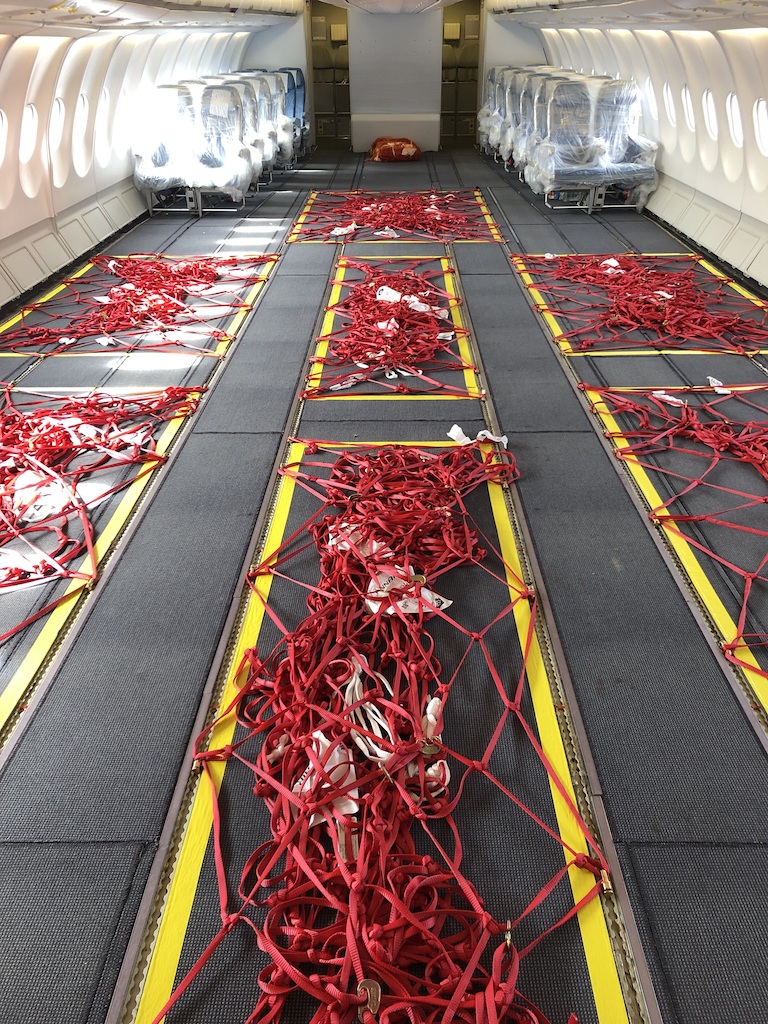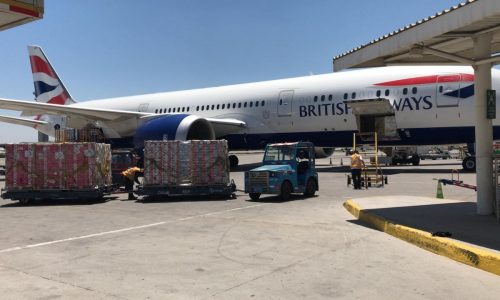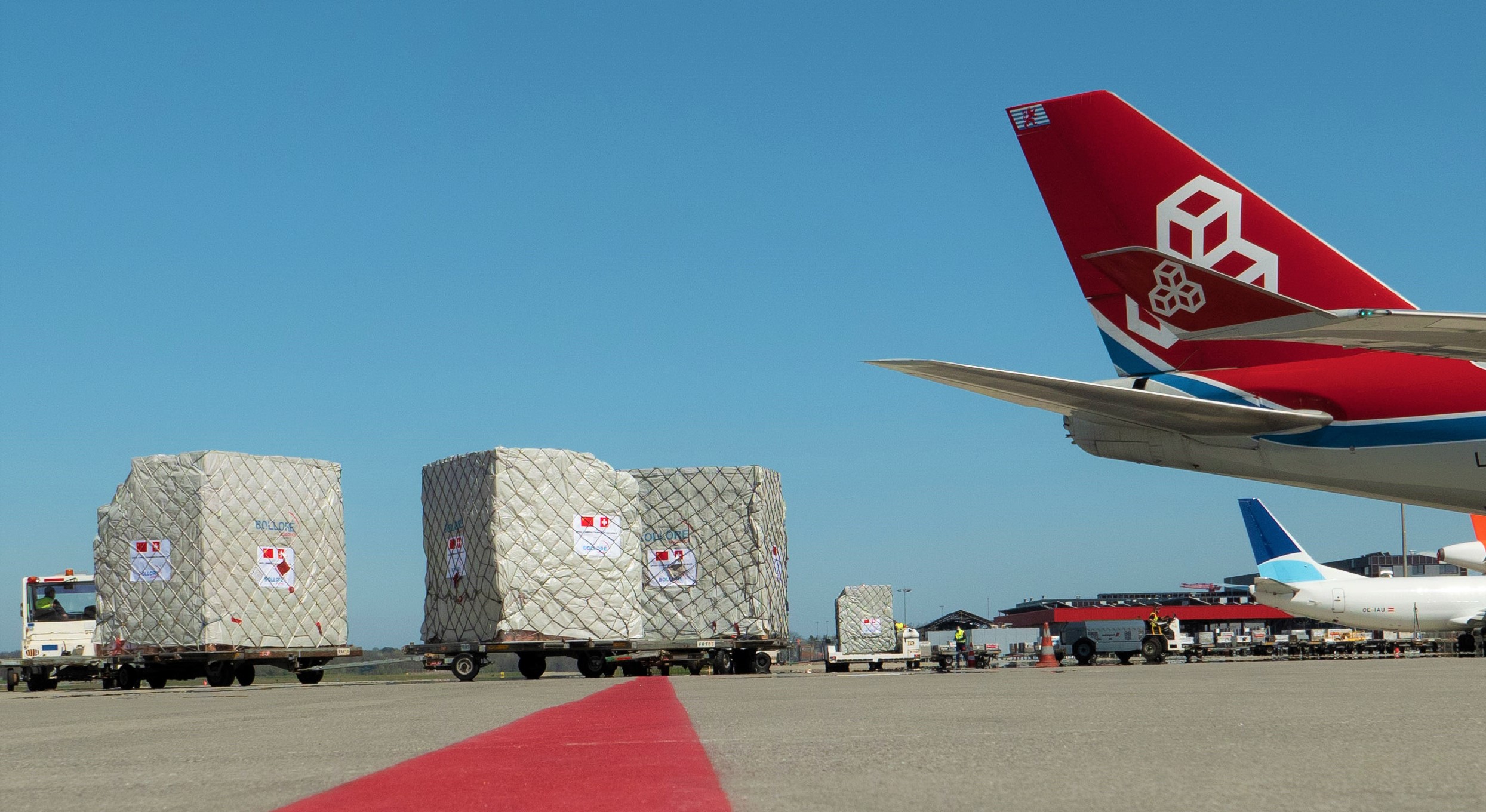Adds frequencies and routes to its pax network, with long-haul routes beginning in July

Finnair has modified two Airbus A330s for cargo use by removing economy class seats from the cabin, nearly doubling the cargo capacity of the aircraft.
The free cabin space will be used mainly for shipping supplies needed in the coronavirus pandemic.
“Functioning logistic connections are always critical for the world economy, but their meaning is heightened during the crisis. To ensure the availability of national emergency supplies, it’s important to be able to access goods from another continent in a matter of hours,” said Mikko Tainio, managing director of Finnair Cargo.
Shipments in A330 cabin are secured in the cabin with cargo nets. About half of the existing capacity of the wide-body aircraft is already reserved for cargo below the cabin.

Finnair’s technical operations implemented the A330 modifications and removed the seats in fewer than two days. As the demand for passenger traffic increases, the planes can also be returned to passenger operations quickly.
In April and May, Finnair has been flying cargo to the large cities in China, Japan and Korea, as well as Tallinn and Brussels in Europe. Last week Finnair also started cargo flights to New York and Bangkok. Finnair is currently operating more than 50 one way cargo flights a week.
“By offering cargo connections between different continents, we can do our part to help the world to recover from the impacts of the pandemic. Thanks to the demand for cargo, we’ve been able to keep more of our planes in the sky and people employed both in the air and in our terminal operations,” said Tainio.
Finnair adds frequencies and routes to its network, with long-haul routes beginning in July
From July, Finnair will gradually add frequencies and routes back to its network. Finnair will review its schedule on a monthly basis and will update it as travel restrictions are removed and demand starts to recover.
”We expect aviation to recover gradually, starting in July”, said Finnair Chief Commercial Officer Ole Orvér. ”Our intention is to operate approximately 30% of our normal amount of flights in July, and we will also start long-haul flights to our key Asian destinations. We will then add routes and frequencies month by month as demand recovers.”
Finnair will flexibly add flights as demand develops. The flight schedule will also take into account the changes in travel restrictions in different countries.
“Our recent customer survey shows that customers are already planning both business and leisure trips”, Orvér said. “We want to meet this demand with our network offering.”
Long-haul operations start from Asia
Finnair’s long-haul operations will commence in phases from July, with strong focus on Asia, which is strategically important for Finnair. Finnair will fly to Beijing, Hong Kong, and Shanghai in Greater China (subject to government approval); to Nagoya, Osaka and Tokyo Narita in Japan; and to Singapore, Seoul and Bangkok.
Long-haul operations are supported by the cargo demand. In August, Finnair will start flights to Delhi and to New York, and in November to Tokyo Haneda airport. Finnair also has flights to Miami, Krabi and Phuket during the winter holiday season.
European operations serve key cities
On European routes, Finnair will first focus on key centres, and will in July fly to Berlin, Brussels, Budapest, Copenhagen, Dublin, Düsseldorf, Edinburgh, Frankfurt, Gothenburg, Geneva, Hamburg, London, Malaga, Manchester, Moscow, Munich, Oslo, Paris, Prague, Riga, Tallinn, Stockholm, St Petersburg, Vilnius, Vienna and Zürich.
In August Finnair will start flights to Barcelona, Milan, Madrid, Rome and Warsaw. During the summer holiday season Finnair will also operate individual flights to some of the holiday destinations in Southern Europe.
Domestic flying maintains key air connections
In July, Finnair will operate six domestic routes in Finland, flying to Kuopio, Mariehamn, Oulu, Rovaniemi, Turku and Vaasa. In August Finnair will start flying to Ivalo and Kittilä in the Finnish Lapland, and in September operations start to Kuusamo and Tampere.
Finnair will not operate to Joensuu, Jyväskylä, Kajaani, Kemi or Kokkola during summer 2020. Decisions for these five destinations for winter 2020/2021 will be made later on, when there is more visibility to how the demand develops.

